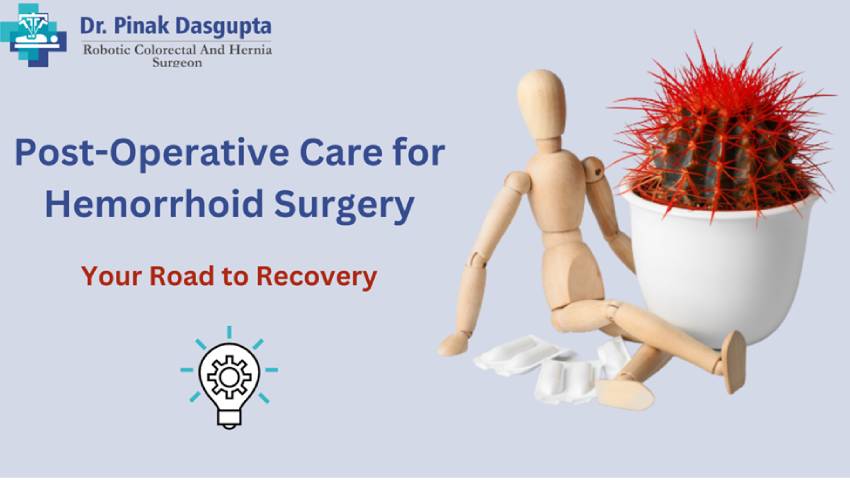- 04/10/2023
- by Dr. Pinak Dasgupta
- Blog
Embarking on the journey of post-operative care after hemorrhoid surgery can raise various questions and uncertainties. To guide you through this crucial phase of recovery, we’ve compiled a set of frequently asked questions (FAQs) addressing key aspects of post-operative care. Whether you’re curious about pain management, dietary adjustments, or the significance of follow-up visits, these FAQs aim to provide comprehensive insights into ensuring a smooth and successful recovery from hemorrhoid surgery.
Understanding the importance of pain management, proper hygiene, dietary changes, and activity levels during recovery is vital. Additionally, insights into the role of regular follow-up appointments and lifestyle modifications for preventing recurrent hemorrhoids can contribute significantly to your overall well-being.

FAQs on Post-Operative Care for Hemorrhoid Surgery:
It’s common to experience some discomfort and pain after hemorrhoid surgery. Your doctor will provide you with appropriate pain medications and instructions on how to manage and alleviate pain during your recovery.
Yes, a few drops of blood can be expected occasionally in the initial 10 days during or after passing motion. But any significant bleeding more than 10 ml should be alarming and warrants a hospital visit.
Proper hygiene is crucial to prevent infection and promote healing. Regular cleaning and Sitz baths is recommended to soothe the area and aid in the healing process.
Yes, your diet plays a significant role in the recovery process. It is recommend to have a high-fiber diet to prevent constipation, which can worsen local symptoms. Adequate hydration is also essential to maintain soft stool consistency. Laxatives are also prescribed postoperatively.
While it’s essential not to remain sedentary, strenuous activities should be avoided during the initial recovery period. Your doctor will provide guidelines on when you can gradually resume normal activities based on your individual healing progress.
Meet Dr. Pinak Dasgupta: Your Trusted Colorectal Surgeon
Dr. Pinak Dasgupta is a highly skilled physician with over 15 years of clinical and surgical experience. He specializes in various fields, including Colorectal Surgery, Gastrointestinal and Laparoscopic Surgery, Robotic Surgery, Hernia & Abdominal Wall Reconstruction procedures, and Proctology. He is currently serving as a Consultant and Lead Surgeon at the renowned GEM Hospital and Research Centre in Chennai.
Dr. Pinak Dasgupta is known for his meticulous approach in treatment of gastrointestinal diseases with judicious and ethical practice of surgery. He offers state-of-the-art medical and surgical services in laparoscopic, robotic, and laser surgery, ensuring that his patients receive the latest and best treatments available at an affordable cost.



